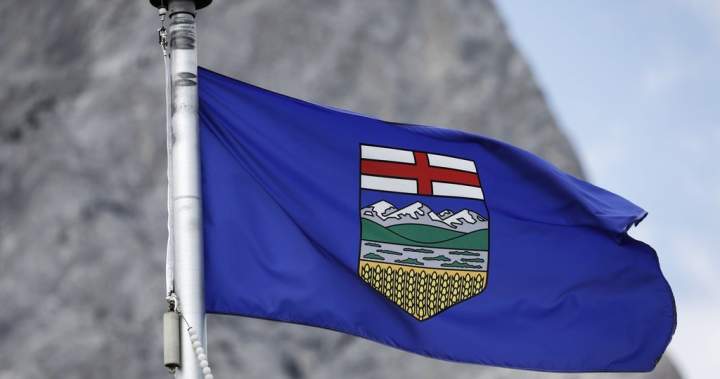The Alberta government’s controversial sovereignty question got its day in court this week, as Premier Danielle Smith referred her proposed referendum language for judicial review. The move comes after months of escalating rhetoric about Alberta’s place in confederation and growing frustration among provincial leaders about federal overreach.
“We believe Albertans deserve clarity on their democratic rights,” Smith told reporters outside the Legislature on Tuesday. “This referendum question addresses the fundamental relationship between our province and Ottawa.”
The proposed referendum would ask Albertans: “Should Alberta establish itself as a sovereign jurisdiction within Canada with the authority to refuse enforcement of federal legislation or judicial decisions that, in its view, interfere with provincial jurisdiction or constitute an undue financial burden?“
Justice Minister Mickey Amery confirmed the government had formally requested the Alberta Court of Appeal to determine whether the question falls within provincial jurisdiction. This marks the first time in recent memory that Alberta has proactively sought judicial input on referendum wording before putting it to voters.
Political observers note this represents a significant escalation in Smith’s sovereignty strategy. The United Conservative Party government has previously passed the controversial Alberta Sovereignty Act, which claimed to give the province authority to ignore federal laws deemed harmful to Alberta’s interests.
Dr. Lisa Young, political scientist at the University of Calgary, suggests the move indicates both strategic caution and political calculation. “The government is trying to thread a very narrow needle here,” she explained. “They want to push the constitutional envelope while still operating within legal boundaries. Seeking judicial review provides a veneer of legitimacy to what remains a deeply contentious proposal.”
The timing is particularly noteworthy as it coincides with renewed federal-provincial tensions over carbon pricing and resource development. Polls from the Angus Reid Institute show approximately 35% of Albertans expressing some support for independence movements, though fewer back concrete steps toward separation.
For many Albertans living in rural communities like Drumheller and Fort McMurray, the sovereignty question speaks to longstanding grievances about decisions made in Ottawa. Margaret Henderson, a third-generation rancher near Medicine Hat, expressed frustration at a recent town hall. “We’re tired of being treated like an afterthought,” she said. “Our industries and way of life are under constant threat from policies crafted by people who’ve never set foot here.”
Opposition leader Naheed Nenshi called the referendum question “dangerous constitutional brinkmanship” and criticized the government for diverting attention from pressing economic and healthcare challenges. “Albertans want solutions to real problems, not costly constitutional adventures,” Nenshi stated during question period.
The federal government has maintained a measured response. Intergovernmental Affairs Minister Dominic LeBlanc emphasized that “Canada’s constitution clearly outlines the division of powers between provinces and the federal government” and expressed confidence that “the courts will uphold these fundamental principles.”
Constitutional experts remain skeptical about the referendum’s legal standing. University of Alberta law professor Eric Adams points out that “provinces cannot unilaterally redefine their constitutional relationship with the federal government, regardless of referendum results.”
The decision to seek judicial review could delay Smith’s planned referendum timeline, initially targeted for this fall. Government sources indicate they now anticipate a potential spring 2025 vote, aligning closely with the next provincial election.
This latest sovereignty push follows similar movements in Quebec and growing regionalism across Western Canada. However, Alberta’s approach differs significantly from Quebec’s more cultural and linguistic-based sovereignty arguments, focusing instead on economic autonomy and resource control.
The financial implications remain substantial. The Parliamentary Budget Officer estimates implementing such sovereignty measures could cost Alberta billions in federal transfers and create significant regulatory uncertainty for businesses operating across provincial boundaries.
Energy industry representatives have expressed mixed reactions. While some producers support greater provincial autonomy over resource development, others worry about market access complications and investor uncertainty that could arise from constitutional conflicts.
Indigenous leaders have also voiced concerns. Grand Chief Arthur Noskey of Treaty 8 First Nations of Alberta emphasized that “First Nations’ relationships are with the Crown through treaties that predate provincial boundaries. Any sovereignty discussion must respect these nation-to-nation agreements.”
As the courts begin their review, Albertans across the political spectrum are watching closely. The outcome could reshape not just Alberta’s place in confederation, but potentially the fundamental structures of Canadian federalism itself.
For a province with deep ties to both its western identity and Canadian nationhood, the coming months promise to test these competing loyalties in unprecedented ways.






